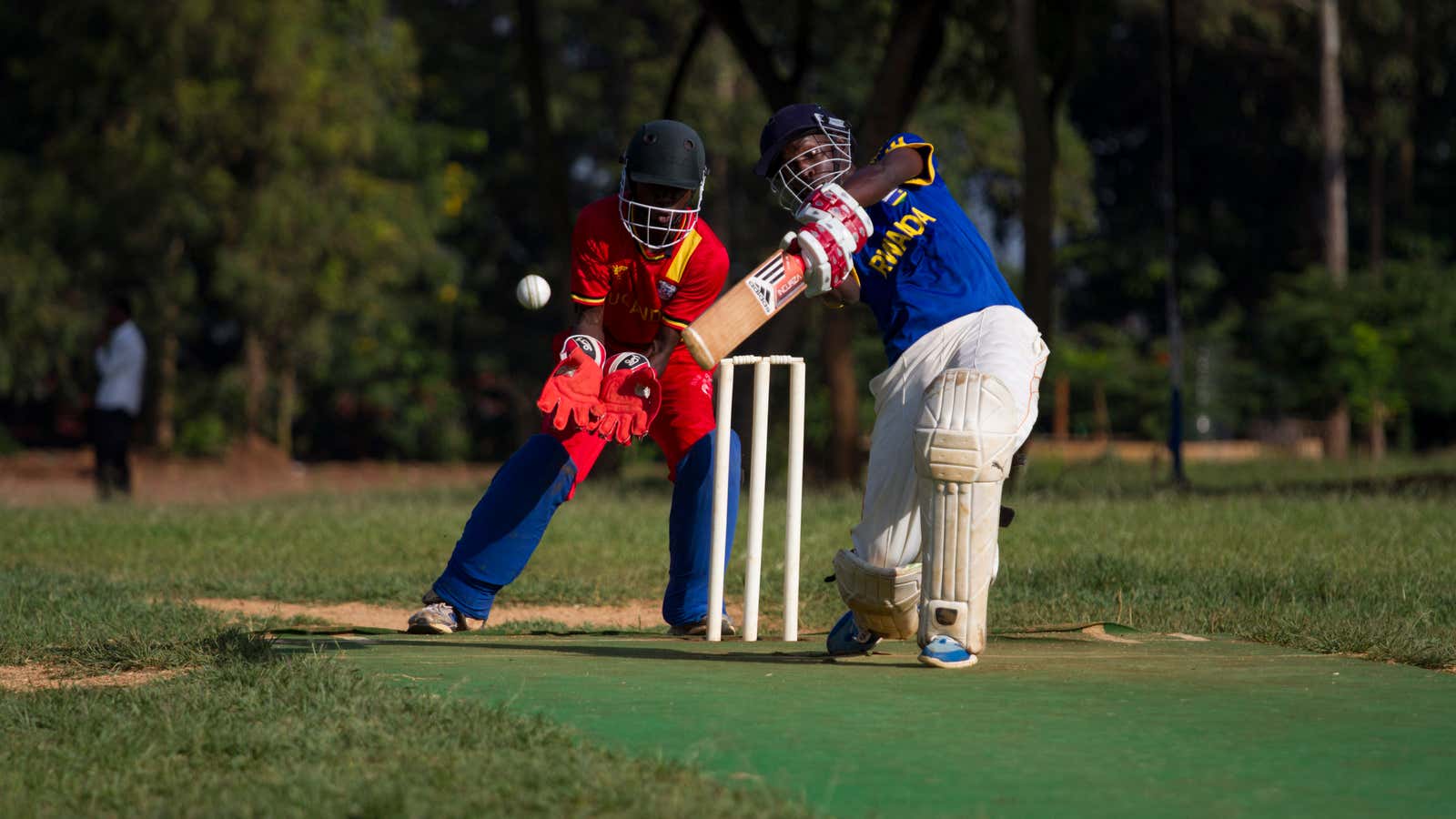There’s not a single standardized pitch to play cricket in Rwanda. Yet, in this nation of 11.6 million people, cricket is gaining a new foothold, bringing people together and strengthening Rwanda’s budding sports industry, as photographer Cornell Tukiri found in Kigali.
Between 5,000 and 10,000 Rwandans are now engaged in playing cricket on a full or part time basis. In May this year, Eric Dusingizimana, the captain of the country’s national team, broke the Guinness World Record after batting for 51 hours straight, in order to raise funds for the first cricket stadium.
Cricket was introduced to the country by former refugees returning home from countries like Uganda after Rwanda’s conflict in 1994. Rwanda, a country with a tragic past of genocide, now officially views sports as a tool for reinforcing social cohesion and promoting international recognition.
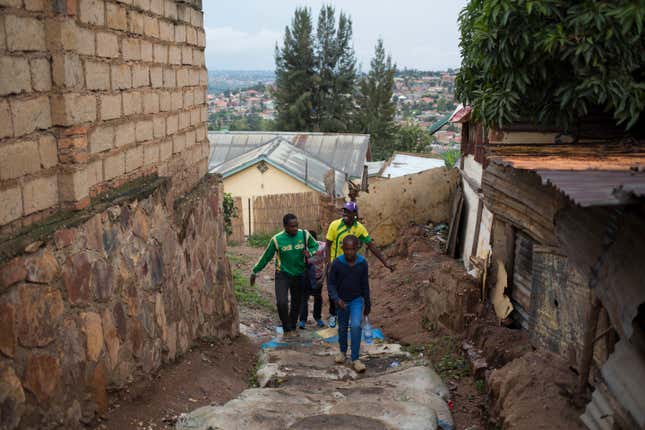
Yet, cricket doesn’t even register in the government’s sports policy: football, the country’s most popular game, followed by basketball, volleyball, cycling and athletics, overshadow the newfound love for cricket.
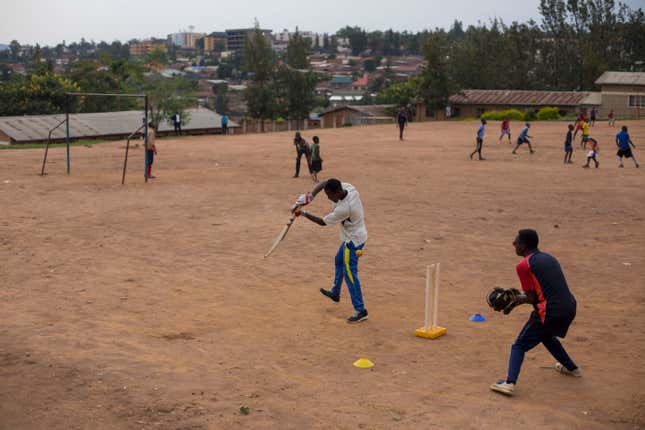
Yet, since 2003, when Rwanda joined the International Cricket Council, the game has been gaining momentum across the east African nation. Dusingizimana says he was attracted to the game while watching players near a pitch in his high school in Rwanda. “I liked geometry and physics, and looking at the bounce of the ball and the reaction of the batman” appealed to him, he says.
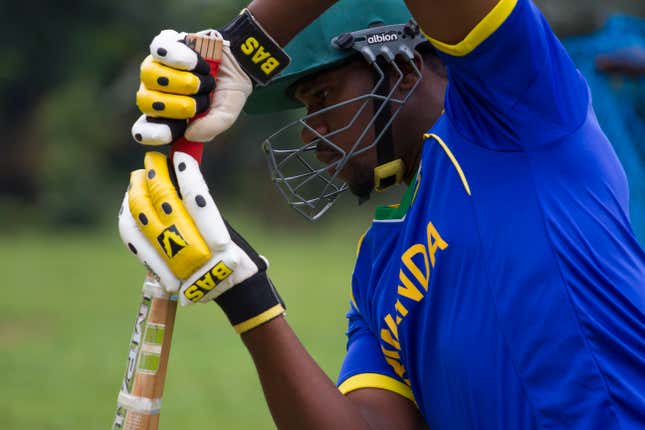
In 2003, Rwanda also started a bid to join the Commonwealth nations, an organization composed of former British territories. In 2009, the former Belgian colony was the second country, after Mozambique, to be welcomed into the organization without having any historic British ties. The country also shifted its official language from French to English.
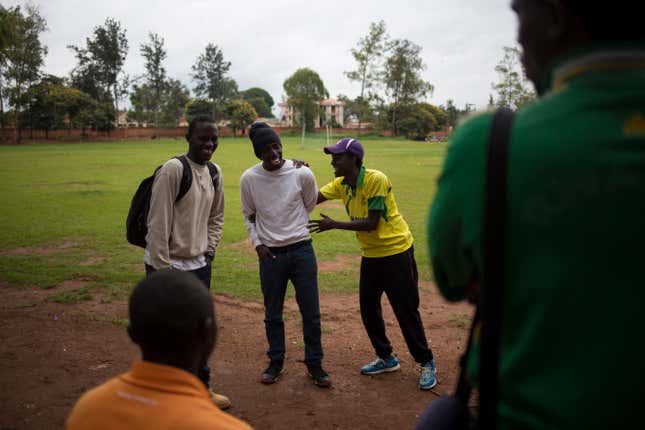
Since then, the enthusiasm surrounding cricket has increased, an interest affirmed by Alby Shale, the director of the Rwanda Cricket Stadium Foundation. The UK-based charity was formed in 2011 to raise money and build the first international stadium in the country. The construction of the 4.5-hectare cricket ground and service facilities is due for completion before the end of 2016. The new facility, Shale says, will “give the sport a platform from which cricket can flourish in Rwanda,” adding, “You would struggle to find another country with such enthusiasm for cricket marched with such poor facilities.”
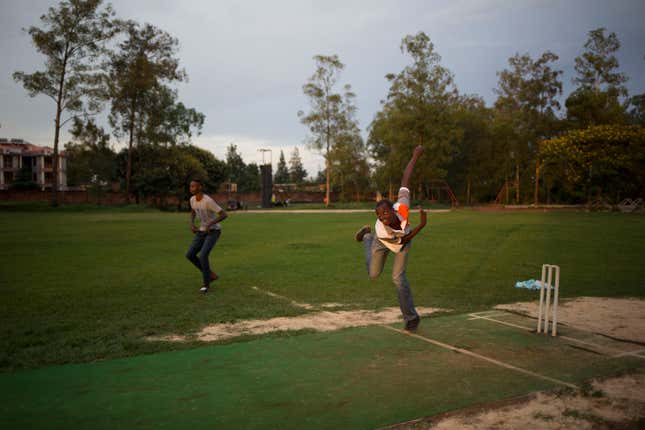
The enhancement of facilities and provision of investors might give Rwanda a chance to compete both globally and with its regional neighbors. Kenya, for instance, has had a vibrant cricket team since joining the ICC in 1981, even reaching the World Cup finals in 2003. Uganda has held regular cricket games since the early twentieth century. Zimbabwe and South Africa, also feature among the top ten in the ICC cricket test rankings.
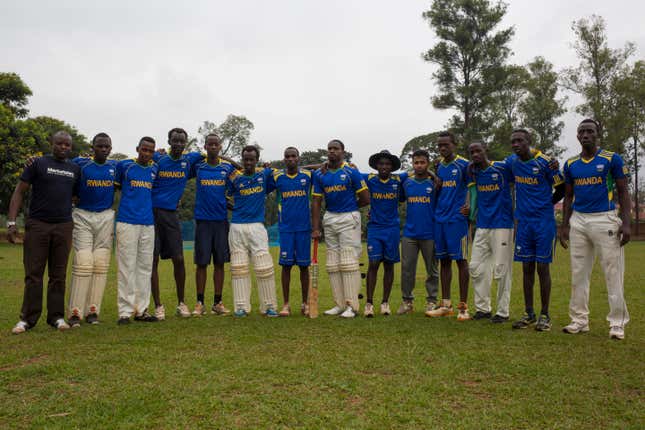
As part of Rwanda’s 2020 vision, the government aims to have the highest percentage of the population playing sports than in any African nation. It hopes to actively invest in sporting as a way to increase available opportunities to athletes, improve the health of its citizens, as well as generating income for the country.

For player like Dusingizimana, the hope is to use cricket to put Rwanda back on the map. Dusingizimana, who has been playing the game for a decade now, says the future of cricket in Rwanda is bright. Besides bringing Rwandans together, he says, “It teaches people how to live outside the field. Cricket is not just a game. Cricket is about life.”
